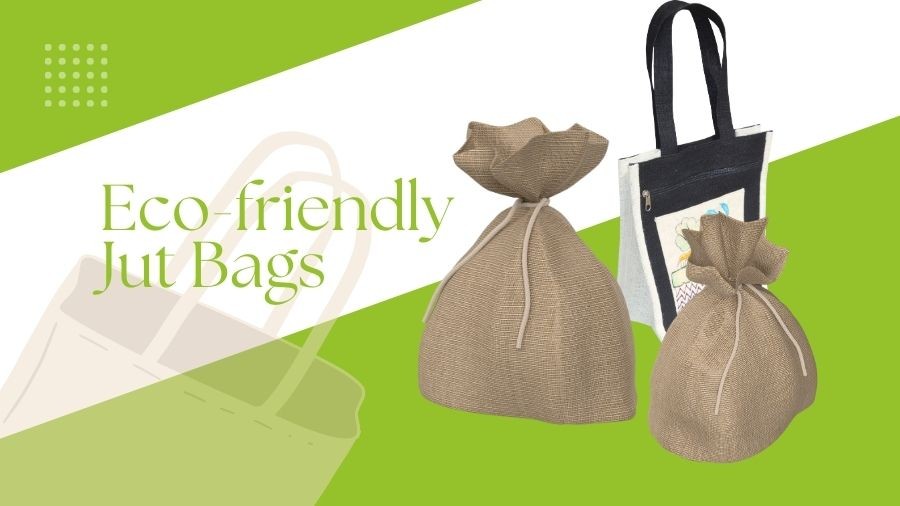Wholesale Eco-Friendly Jute Bags in Focus as Demand for Sustainable Products Rises

The demand for wholesale eco-friendly jute bags is growing globally as sustainability becomes a priority for businesses and consumers. Jute bags, made from natural fibers, are biodegradable and durable, making them a popular alternative to plastic and synthetic materials. With governments introducing stricter regulations on plastic usage, industries are seeking eco-friendly solutions, leading to increased interest in jute products.
Jute is a renewable resource cultivated primarily in countries like India and Bangladesh. It requires minimal water, no chemical pesticides, and is compostable after use. These features make it one of the most sustainable fibers available for packaging, fashion, and home decor. Additionally, its strong texture and natural aesthetics add value to products across various industries.
Biodegradable jute tote bags are especially gaining attention for their utility and eco-conscious appeal. Retailers and event organizers are ordering these bags in bulk for shopping, gifting, and promotional purposes. Many businesses see these as an opportunity
The shift toward biodegradable jute products is evident in consumer buying patterns. Reports indicate a significant increase in demand for reusable bags in markets such as Europe and North America. These regions have implemented strict bans on single-use plastics, encouraging industries to invest in sustainable alternatives like jute. Additionally, online platforms selling eco-friendly goods have noted a rise in searches for jute-based products.
Bulk natural jute fabric suppliers are crucial in meeting the rising demand. These suppliers focus on delivering high-quality raw materials to manufacturers of bags, sacks, and other jute items. In countries like Bangladesh, jute farming and production support millions of livelihoods. Bulk orders for natural jute fabric often cater to industries like packaging, apparel, and eco-friendly product manufacturing. The increasing interest in sustainable packaging has also driven global exports of jute fabric.
Handmade jute craft products have carved a niche for themselves in the global market. These include items like baskets, wall hangings, and decorative pieces that showcase the artisanal appeal of jute. Buyers in Europe and North America, known for prioritizing eco-friendly and handmade goods, are leading importers of these products. The rustic charm and natural beauty of jute crafts make them ideal for home decor.
Organic jute home decor items such as rugs, mats, and curtains are also gaining momentum. The trend reflects a broader movement toward using natural materials for interiors. Organic jute items are free from chemical processing, adding to their appeal for environmentally conscious consumers. Countries with high demand for sustainable home furnishings are importing jute-based products in significant quantities.
Despite its growing popularity, the jute industry faces several challenges. Seasonal weather patterns and water availability heavily impact jute farming. Additionally, the labor-intensive process of harvesting and processing jute can limit production capacity. Small-scale manufacturers often struggle to scale operations to meet bulk orders. However, advancements in technology and increased investments in infrastructure are gradually addressing these issues.
Innovations in jute product manufacturing are helping expand its market. Manufacturers are introducing laminated jute products that combine functionality with eco-friendliness. These innovations allow jute bags to be water-resistant, increasing their utility across industries. Similarly, new dyeing techniques are creating vibrant and diverse designs, enhancing the aesthetic value of jute items.
Export opportunities for jute products are growing. Europe remains the largest importer due to consumer awareness and supportive environmental policies. The United States follows closely, driven by high demand for sustainable goods. Emerging markets in Asia, the Middle East, and Africa are also showing interest in eco-friendly alternatives, further boosting the global jute market.
The role of government initiatives in promoting jute is significant. Subsidies for jute farming and production have helped stabilize prices and encourage exports. Countries like India and Bangladesh have launched programs to modernize jute processing facilities, improving both efficiency and quality. International organizations are also advocating for the widespread adoption of jute as a sustainable solution.
Event organizers are increasingly adopting biodegradable jute tote bags as an alternative to conventional giveaways. This trend not only reduces waste but also raises awareness about sustainable practices. High-profile global events have highlighted the use of jute, bringing it to the attention of businesses and consumers alike.
The rising demand for jute products reflects a shift in global attitudes toward environmental responsibility. Wholesale eco-friendly jute bags, biodegradable jute tote bags, handmade jute crafts, and organic jute decor are becoming essential items for industries and consumers committed to sustainability. The industry is adapting to meet these demands with innovations, government support, and a focus on quality.
